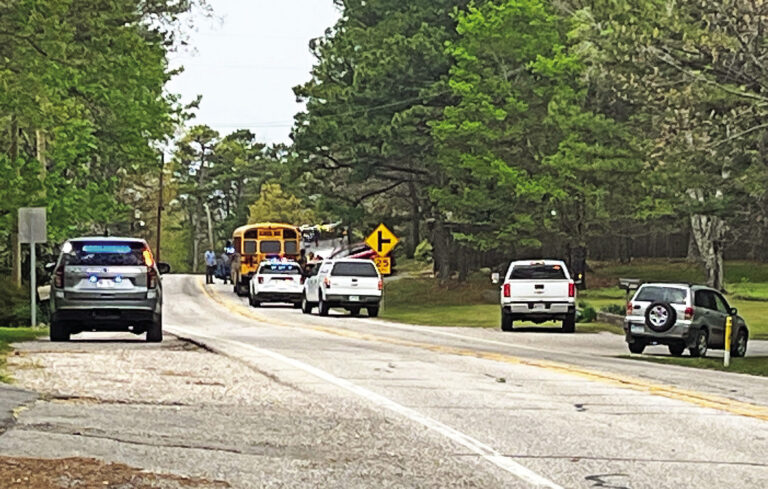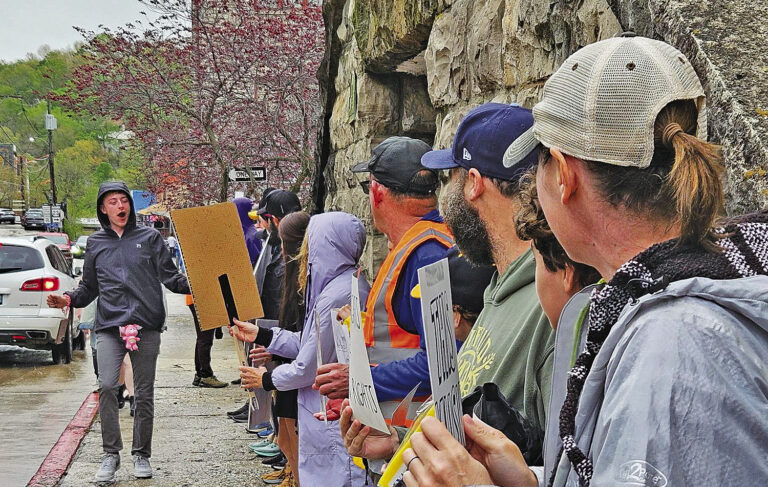The long-debated proposed residential parking district along a part of Spring Street in downtown Eureka Springs has hit a bit of speed bump.
At its regular meeting Monday, Dec. 12, the Eureka Springs City Council decided to table a second reading of a proposed ordinance that would establish a permit-only residential parking district for properties along Spring Street from housenumbers 211 to 287.
The council unanimously approved the first reading of Ordinance 2332 at its Nov. 28 meeting.
“We’ll get there eventually,” Mayor Butch Berry said after the decision to table the second reading.
Opting to postpone any further vote until the council’s next meeting — which won’t be until Jan. 9 because of the Christmas holiday — came after more back-and-forth discussions about specifics of the ordinance.
Specifically, city council members continued to question city attorney Forrest Jacobi about language that would lay out what fine would be administered for those who violate the parking ordinance.
Council member Melissa Greene originally made a motion to set a $70 fine for parking violations in the area, but Jacobi said that would go against current traffic code.
“That $70 number got lifted from the Fayetteville code,” Jacobi said. “In talking to the police chief, Brian Young, he made it clear that if a provision like that were in our code, it would revoke all traffic enforcement under our code, which goes by the state code. We have no particular numbers as such, but police do have guidelines for different areas, for different amounts.
“All we really need to do to enforce this is allow the police and the council to determine what they think the guidelines for inappropriate parking on Spring Street would be. That’s all we need. We don’t have to change the code. We don’t have to put any numbers in so long as we say no parking there and give guidelines to police. That’s really all we need to do. If you specify a number, I agree with the police chief that you would be revoking the municipal code that allows us to catch DWIs, speeders and otherwise.
“The police can determine the guidelines. We already have a long list of guidelines for various things. We just simply need to add a guideline for the Spring Street parking district. … Simple, easy, elegant.”
Council member Harry Meyer said since city ordinance 2173 already lays out various parking-related fines for the city, the new parking district fines should be added to that and be referenced in the new ordinance.
In the end, the council did agree to language that any fine would not be less than $20 and not exceed $70 per violation in a 24hour period. Jacobi, however, said he was going to get further input from Young regarding how fines should be addressed.
“It is incumbent upon this council to not only make this an enforceable ordinance, to make it as simple and easily enforceable as possible because the police department will have their hands full.” Jacobi said. “The simpler and easier we can make it for them to enforce.”
Bill Ott, who was attending his last meeting as a member of the council, said he didn’t understand why more input from Young hadn’t already happened.
“I’m just curious a reason why we haven’t done that between last meeting and this meeting,” Ott asked Jacobi.
Meyer responded: “[Young] has been in on this, but the police don’t levy a fine, the court does. They just issue a ticket. A police officer doesn’t know what the fine is going to be. So, we can pull one out of the air if we want. I don’t see how that conflicts with the police chief. I don’t understand.”
“I’d like to give the police a blank check and let the numbers come from recommendations and let the city prosecuting attorney have his input,” Jacobi said. “We just don’t have to be specific. But again, I will talk to the police chief and see what he wants.”
Ann Tandy-Sallee, chair of the planning commission, again told the council she supports a specific fine as part of the ordinance.
“I don’t think $20 is enough,” Tandy-Sallee said. “That’s not a deterrent. I’m a little confused that we just can’t put a $70 fine in the Spring Street parking district. But that’s up to Mr. Jacobi.”
The other issue debated is how to handle the multi-family housing units in the area that are grandfathered in with existing parking requirements.
“The multi-families that are on that street are all grandfathered in, and they were grandfathered in with parking requirements, and that’s not really addressed in here,” Greene said of the ordinance. “And I feel that it should be addressed because they were grandfathered to provide a certain amount of parking.”
That topic also will be studied more before the January meeting, Berry said.
“I think what I would recommend is more research on this to see exactly what was done when that was grandfathered in the minutes,” he said.
OTHER ACTION
In new business, the council unanimously approved three readings and invoked the emergency clause to adjust how the city attorney and city prosecutor are being paid.
“When we originally wrote the ordinances for both the city attorney and prosecuting attorney, we had it in there that they would be paid on a monthly basis,” Berry said. “We’ve since discovered that they’re really on the city payroll, which gets paid every two weeks.”
Shop in Store



